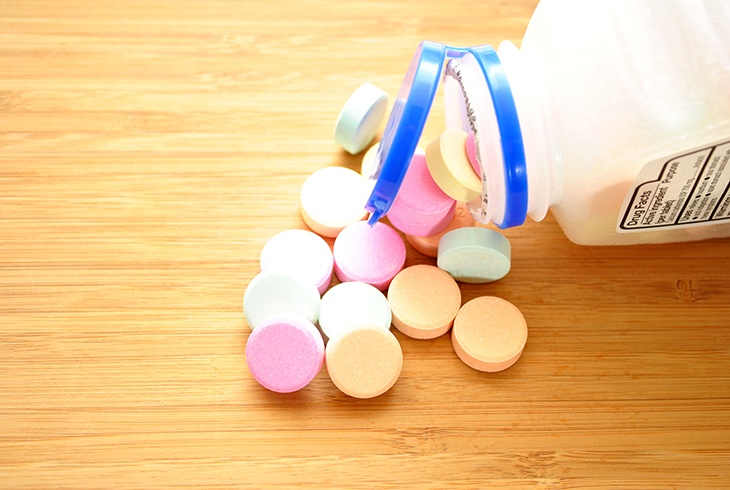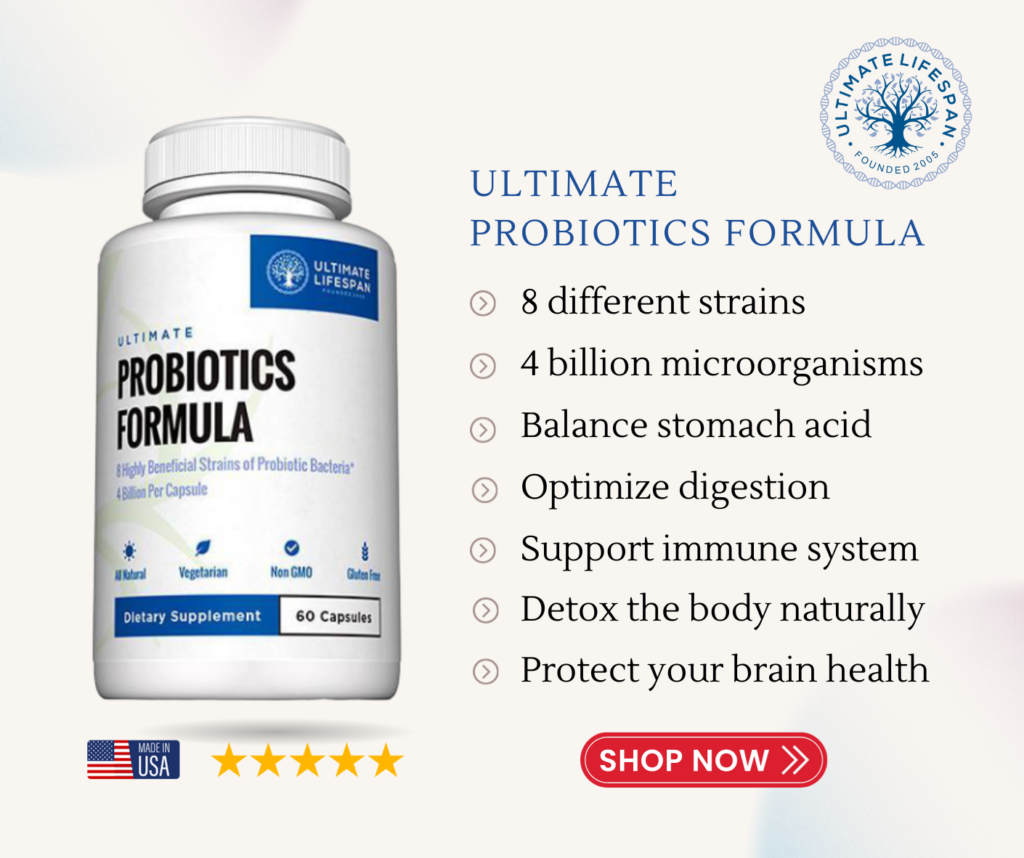Take Probiotics And Toss Your Antacids
Did you know that your stomach has been described as your “second brain”? This isn't just a catchy phrase—it’s backed by the fact that billions of neuroreceptors line the gut, creating a vast neural network that controls everything from immune function and hormone regulation to inflammation response and nutrient absorption. But what happens when we disrupt this delicate balance?
Our world teems with microorganisms, including bacteria, and our bodies are no exception. Bacteria are everywhere—on our skin, in our gut, and even in open wounds. But not all bacteria are bad. In fact, beneficial bacteria play a crucial role in our health, particularly when it comes to digestion.
One of the most important groups of these beneficial bacteria is Lactobacillus, named for its ability to convert lactose and other sugars into lactic acid. This acidification of the gut environment helps inhibit the growth of harmful bacteria, creating a hostile environment for them. Acidophilus, a common term for a group of probiotics, works in harmony with Lactobacillus to support immune function, digestion, and nutrient absorption, all while keeping harmful bacteria at bay.
When the balance between good and bad bacteria tips in the wrong direction, our health begins to suffer.
GI imbalance can occur in several ways:
Antibiotic Use
While antibiotics effectively eliminate harmful bacteria, they also indiscriminately kill beneficial bacteria in the gut, leading to a reduction in microbial diversity and allowing harmful bacteria to overgrow.
Poor Diet
A diet high in processed foods, refined sugars, and unhealthy fats can feed harmful bacteria and yeast, promoting their growth while starving beneficial bacteria. Conversely, diets low in fiber deprive the good bacteria of the prebiotics they need to thrive.
Chronic Stress
Stress can negatively impact gut health by altering gut motility, increasing intestinal permeability (“leaky gut”), and reducing the production of mucus that protects the gut lining. Stress hormones can also directly influence the composition of the gut microbiome.
Environmental Toxins
Exposure to environmental toxins, such as pesticides, heavy metals, and pollutants, can disrupt the balance of the gut microbiome. These toxins can damage the gut lining, kill beneficial bacteria, and promote the growth of harmful microorganisms.
Infections
Gut infections caused by pathogenic bacteria or parasites can lead to dysbiosis by overwhelming the gut with harmful pathogens. Infections can also trigger inflammation, further disrupting the balance of the microbiome.
Excessive Alcohol Consumption
Alcohol can irritate the gut lining, increase gut permeability, and alter the composition of the gut microbiome by favoring the growth of harmful bacteria and yeast.
Lack of Sleep
Poor sleep patterns and insufficient sleep can disturb the gut-brain axis, a communication network between the gut and the brain, leading to dysbiosis. Sleep deprivation can also weaken the immune system, making the gut more vulnerable to harmful bacteria.
Sedentary Lifestyle
A lack of physical activity can negatively affect gut health. Regular exercise promotes a diverse and healthy gut microbiome, while a sedentary lifestyle can contribute to dysbiosis.
Aging
As we age, the diversity and balance of the gut microbiome naturally change, often leading to a decrease in beneficial bacteria and an increase in potentially harmful ones.
Certain Medications
Besides antibiotics, other medications such as proton pump inhibitors (PPIs), nonsteroidal anti-inflammatory drugs (NSAIDs), and certain antipsychotics can alter the gut microbiome, potentially leading to dysbiosis.
Here’s the kicker: Most people think that their digestive discomfort is due to too much stomach acid, but in reality, the problem is often the opposite—too little hydrochloric acid (HCL). Without enough HCL, your stomach can't properly break down food, leading to symptoms that mimic those of high acid, like heartburn. So what do we do? We reach for antacids.
How antiacids make the problem worse
But here’s the problem with antacids: they don’t address the root cause. Instead, they temporarily reduce stomach acid production, masking symptoms rather than solving the underlying issue. They actually make the problem even worse! And while this might bring short-term relief, the long-term consequences can be severe.
Consider this:
- Calcium Imbalance and Bone Fractures: Prolonged use of antacids can interfere with calcium absorption, leading to weaker bones and an increased risk of fractures. Blood levels of calcium might be elevated, because it is not directed to the bones where it belongs.
- Higher Risk of Stroke: Some studies have linked the regular use of certain antacids to a higher risk of stroke. Calcium in arteries can lead to calcification.
- Kidney Disease: Your kidneys may suffer from prolonged antacid use, especially if you're taking them regularly. Calcium dysregulation here can cause kidney stones.
- Gastrointestinal Disruption and Infections: Reducing stomach acid can lead to a higher risk of GI infections since acid acts as a barrier to harmful bacteria.
- Malabsorption of Minerals and Vitamins: Antacids can interfere with the absorption of essential nutrients, leading to deficiencies that can affect your overall health.
- Electrolyte Imbalance: Your body's electrolyte balance can be thrown off, which can cause a host of other health issues.
- Aluminum Accumulation: Some antacids contain aluminum, which can accumulate in your body over time, leading to toxicity.
- Increased Dementia Risk: There’s even evidence to suggest that long-term antacid use can increase the risk of dementia by up to 33%. Aluminum ends up in the brain.
Natural Solutions
So what’s the alternative? Instead of masking the problem with antacids, consider a more natural approach: probiotics. By supplementing your diet with natural sources of minerals, enzymes, and probiotics, you can help your body maintain a healthy balance of good bacteria, allowing them to thrive while keeping harmful bacteria in check.
Incorporating more raw fruits and vegetables into your diet is a great way to support your gut health. Brightly colored vegetables like carrots and beets are particularly beneficial, as they are rich in vital minerals, nutrients, and phytochemicals—powerful compounds that can help alleviate digestive imbalance and improve overall health.
One of the simplest remedies for acid reflux is to eat an organic apple, peel and all. The peel contains essential enzymes that aid digestion. Science is continually discovering the benefits of phytochemicals, antioxidants, and flavonoids found in fruit and vegetable skins, which may help alleviate acid reflux and other digestive issues.
Adding live fermented foods to your diet is another powerful way to support gastrointestinal (GI) health. Fermented foods like sauerkraut, kimchi, yogurt, kefir, and miso are rich in live probiotics that naturally replenish the beneficial bacteria in your gut. These foods not only help maintain the delicate balance of your microbiome but also enhance digestion, improve nutrient absorption, and strengthen your immune system.
The fermentation process also breaks down the food, making nutrients more bioavailable and easier for your body to absorb. Regularly consuming live fermented foods can provide a diverse range of probiotic strains, which is crucial for a resilient and thriving gut ecosystem, making them an excellent addition to any gut-health regimen.
But let’s be honest—with our busy, on-the-go lifestyles, getting enough lactobacillus and acidophilus bacteria, along with all those beneficial phytochemicals, antioxidants, and flavonoids, can be challenging.
That’s where a high-quality probiotic supplement can come in handy. Not only can it provide the necessary good bacteria to restore balance to your gut, but it can also help you avoid the harmful side effects of antacids. And with potential therapeutic benefits like anti-inflammatory and anti-cancer properties, it’s clear that probiotics are a smart choice for long-term digestive health.
So, before you reach for that antacid, consider whether a probiotic might be a better solution. Your gut—and your overall health—will thank you.
Sources
Harvard Health Publishing. Pay attention to your gut-brain connection – it may contribute to your anxiety and digestion problems. July 18, 2023.
Eric Lespessailles, Hechmi Toumi. Proton Pump Inhibitors and Bone Health: An Update Narrative Review International Journal of Molecular Sciences. September 14, 2022.
2024 National Kidney Foundation, Inc. Acid reflux and proton pump inhibitors
Annie Lennon. Long-term use of acid reflux drugs linked to higher risk of dementia. Medical News Today. August 11, 2023.
Science Daily. Popular heartburn medication may increase ischemic stroke risk. November 15, 2016.
Isadora Baum. 7 Surprising Things That Can Happen If You Take Antacids Too Often. Prevention. February 8, 2018.



Is there a way just to order the probiotic by itself? thanks
Hi Pat, You bet. The direct link to our Ultimate Probiotics is here: https://www.ultimatelifespan.com/collections/store/products/ultimate-digestive-health-probiotics-formula-1-pack
I have constant heartburn and am taking way too many antacids. I ordered some probiotics that arrived today. I didn’t take them, thinking I would take them after I ate. I ate, took the probiotic but was hit with the usual wall of pain. So how does one ramp up the probiotics and decrease the antacids appropriately.